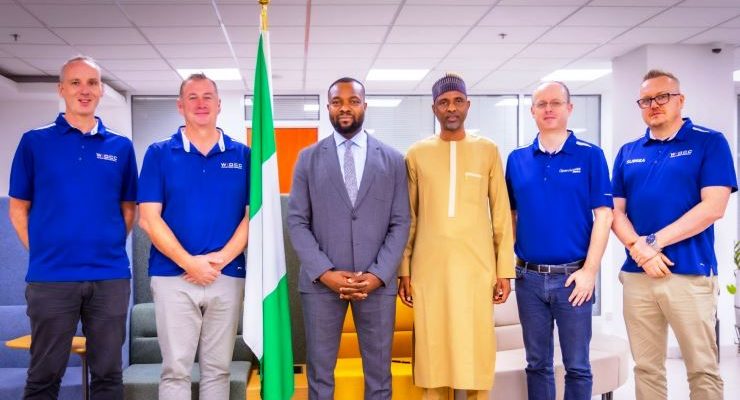Nigeria and WIOCC Group Collaborate to Revolutionize Digital Infrastructure with $10M Investment
The Federal Ministry of Communications, Innovation & Digital Economy has announced a partnership with WIOCC Group. The deal with WIOCC, a leading provider of digital infrastructure and connectivity solutions will accelerate development of Nigeria’s digital economy. This partnership includes a $10 million investment by WIOCC in critical digital infrastructure, training programs for Nigerians, and the local production of essential accessories such as batteries.
RELATED: WIOCC partners with Galaxy Backbone to boost high-speed Internet and digital transformation in Nigeria
The Memorandum of Understanding (MoU) was signed on Wednesday in Abuja by Dr. Bosun Tijani, Minister of Communications, Innovation, and Digital Economy, and Mr. Darren Bedford, Group Chief Business Development Officer of WIOCC.
Focus on Last-Mile Connectivity and Local Development
The initiative will deploy fibre optic cables to homes, schools, hospitals, and public offices, ensuring reliable, high-speed internet access across Nigeria. It also aims to build capacity through the training of Nigerians and stimulate the local economy by manufacturing telecommunications accessories domestically.
“This collaboration with WIOCC Group represents a significant step forward in our commitment to ensuring that Nigerians have access to reliable and high-quality telecommunications services,” said Dr. Tijani.
The partnership emphasizes the ministry’s commitment to developing a resilient digital infrastructure that fosters innovation, promotes inclusion, and drives economic growth.
Enhancing National Telecommunications Policy
As part of this initiative, the Ministry and WIOCC will engage key stakeholders to jointly review and improve Nigeria’s National Policy on Telecommunications. The goal is to align it with the evolving needs of the digital economy and ensure it remains relevant and adaptive to technological advancements.
Dr. Tijani remarked, “Working with the private sector to deliver last-mile connectivity to homes and businesses, amongst other key benefits, is essential to achieving our vision for a robust digital economy. This collaboration creates opportunities to empower communities and enhance digital inclusion across Nigeria.”
WIOCC’s Role in Strengthening Nigeria’s Digital Economy
WIOCC Group, known for its innovative connectivity solutions across Africa, has pledged to support Nigeria’s efforts to become a regional leader in digital transformation. The company’s $10 million investment will enhance broadband access, improve service delivery, and create new job opportunities in the digital sector.
“At WIOCC, we are committed to building Africa’s digital future. By working alongside the Nigerian government, we aim to strengthen connectivity infrastructure, provide training, and contribute to the country’s economic development,” said Darren Bedford, WIOCC’s Chief Business Development Officer.
Key Highlights of the Collaboration
- $10 Million Investment: WIOCC’s commitment to expanding Nigeria’s digital infrastructure.
- Last-Mile Connectivity: Deployment of fibre optic cables to homes, schools, hospitals, and public offices for reliable internet access.
- Local Manufacturing: Plans to locally produce telecommunications accessories such as batteries, creating jobs and reducing import dependency.
- Capacity Building: Training programs for Nigerians to develop critical skills for the digital economy.
- Policy Review: Joint efforts to refine the National Policy on Telecommunications to meet the demands of the digital economy.
Implications for Nigeria’s Economy
This collaboration comes at a critical time when Nigeria is striving to position itself as a leader in Africa’s digital economy. By enhancing internet penetration and creating opportunities for local manufacturing and skills development, this partnership is expected to:
- Boost digital inclusion, especially in underserved communities.
- Foster innovation and entrepreneurship.
- Create new jobs in telecommunications and related industries.
- Drive economic growth by enabling access to global markets and digital services.































